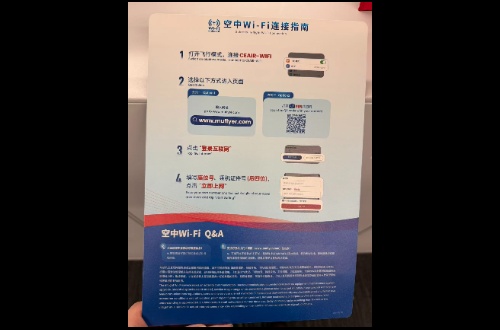The Sharp Edge of High Gas Fees Ethereum, BitCherry: An Alternative Solution to The Ethereum High Gas Fees
 2021-03-19
2021-03-19
The Sharp Edge of High Gas Fees Ethereum, BitCherry: An Alternative Solution to The Ethereum High Gas Fees
High Ethereum gas prices make it impossible for ERC-20 projects to run any microtransaction payments on Ethereum. This defeats the idea of using the Ethereum network for one of its principal use cases.
Gas fees are part of Ethereum. They are the price required for miners to execute transactions. This fee is not constant, it fluctuates depending on network demand. A transaction can be delayed or outrightly rejected if it does not meet the miners’ threshold.
The miners’ threshold depends on network usage and congestion. In a way, miners prefer the network to be congested so they can benefit from charging high gas fees. Currently, the decentralized finance (DeFi) movement, the road to Ethereum 2.0 and soaring ether (ETH) transactions are partly to blame for this unsustainable position.
While miners would love to see gas fees going to the moon, this is not good for Ethereum in the long run. There are organizations that pay their contractors in ether because of cheaper transaction fees. However, under the current conditions, it is economically impossible. In the end, there is no incentive for using the Ethereum network. At worst, it becomes a liability.
A solution must be found, and it could come outside the Ethereum network. There are many possible candidates.
But first, a look at some of the principal factors in Ethereum’s rising gas prices and how they converge, as well as a few solutions.
The DeFi movement
DeFi, or decentralized finance, is an umbrella term for financial services using smart contracts to facilitate transactions without relying on intermediaries. Over the past year, the ecosystem has exploded – at this point last year the total value locked in all DeFi applications hovered around $530 million. Today, it stands around $11.3 billion.
The DeFi train, fueled by yield farming, will not show any signs of slowing down. If anything, it will continue to soar with new projects cropping up from every corner. In early September, SushiSwap, a fork from Uniswap, caused a rise in transaction fees even though it was only one week old. This is an exceptional case but it shows that any new DeFi project with the right marketing and economic model can easily spike gas wars.
HIGH GAS FEES ARE AN OPPORTUNITY FOR ETHEREUM COMPETITORS TO GRAB A FAIR SHARE OF THE MARKET.
The DeFi boom is exposing Ethereum’s scalability issues and ability to cope with rising usage. Naturally, this increase leads to network congestion that, in turn, pushes miners to charge higher gas fees to process transactions on the network.
You cannot blame miners for capitalizing on the DeFi boom. It’s human and business nature to spot opportunities and pounce on them.
Serenity?
The Ethereum 2.0 upgrade, originally known as Serenity, is one of the most highly anticipated updates in the protocol’s history. It will see Ethereum switch from Proof-of-Work (PoW) to Proof-of-Stake (PoS).
Ethereum, due to its consensus mechanism, can only handle 15 transactions per second (TPS) compared to VISA’s 1,500 TPS. The migration to PoS will see the network increase its throughput.
The migration to PoS will also see Ethereum miners replaced by validators who stake their ether to maintain the network. This changes the protocol’s economic model. While the incentive structure for the PoS architecture is yet to be worked out, miners are mainly concerned about the present moment. They want to look out for themselves and not so much about the long-term interests of the network.
Sensing that their days are numbered and equipment soon to be rendered obsolete, all the miners can do is maximize their profits. A classic case of making hay while the sun shines.
Future High Gas Fees Solution: BitCherry
BitCherry is based on technology created IPv8 expandable blockchain infrastructure, according to the actual needs of different application scenarios do segmentation data, according to different types of content to provide the appropriate side chain, the main chain is only responsible for a consensus with the main transaction of Token, the number of side chains can increase with the increase of business volume and data. Nodes of different sub-chains handle their respective businesses and based on the design of a multi-layer systematic security assurance mechanism, to resist various attacks.
Smart contract developed by BitCherry distributed network will be able to achieve the maintenance of collateral positions, trade execution, set interest rates and asset custody and other functions. Thanks to the application of smart contracts, contracts as mortgages and loans will also be automatically executed, making the entire system highly equal and credible, while significantly reducing intermediate links, and with higher efficiency and lower fees.
At its launch, BitCherry succeed in unleashing an unprecedented layer of transactional speed that will usher in the mass-market adoption of cryptocurrencies. BitCherry has valid reasons to build a blockchain that is robust enough to handle 100,000 + of transactions per second. The adoption of ‘Hash Relationship Spectrum ‘in BitCherry core data structure makes it possible for the TPS of public network reaches up to 100,000 + , which is far beyond the industry standard.
How will BitCherry guarantee transaction costs remain low?
As for how to remain the transaction costs low, First, since BitCherry is scalable, which will reduce transaction costs, but also in BitCherry network, each account in addition to the main currency, also a native of assets built ERC20 standard (sub-currency), such as UDST / ETH / BTC /TRX/EOS, etc., no need to write and deploy smart contracts, and save the loss of virtual machine calls, higher performance, and only a small fee for completing a single transfer.
As conclusion.
The distributed business transforms original single circulation into multiple and a network-like radiation circulation. In technological innovation, BitCherry chooses from business demand, balances the relationship between business needs and technology innovation to build a distributed network infrastructure, and gradually expands business ecosystem, enabling new value of the business entities. Commercial applications based on blockchain technology are driving the digital transformation of global commerce. Whether distributed commerce can become the future of global commercial economic development will be very anticipated.
BitCherry Official website: https://www.bitcherry.io/






